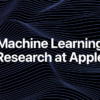In the rapidly evolving landscape of business education, IE Business School stands out as a leading institution that is fully embracing the potential of artificial intelligence (AI). Rather than merely adding a few AI-related modules to its curriculum, IE is embedding AI into its very foundation, showcasing a proactive approach that positions it at the forefront of educational innovation.
One significant initiative is IE’s collaboration with OpenAI to launch ChatGPT Edu, a tailored version of the well-known AI model, for its entire community of students, faculty, and staff. This extensive rollout is a remarkable move, illustrating IE’s commitment to integrating AI into every facet of learning and leadership.
The curriculum reflects this commitment: in the Master in Management program, students engage with courses like Big Data & Machine Learning and Chatbots & Intelligent Interfaces. Similarly, the Master in Finance program now features a course on Deep Learning in Python. This integration ensures that students are not merely passive users of technology, but actively learning to leverage AI tools in their fields.
Executive Education and AI for Functions
Beyond traditional degree programs, IE offers specialized short-intensive programs through its “AI for Functions” initiative. These programs address how generative AI is transforming various sectors such as finance, marketing, legal, and human resources. A notable example is a three-day in-person course on AI-Powered Finance held in Madrid, which includes hands-on demonstrations, case studies, and personalized implementation roadmaps for participants.
However, IE’s approach extends beyond technical skills. The institution emphasizes the importance of leadership, ethics, and governance in AI. Foundational modules within the “AI for Functions” initiative cover strategic transformation frameworks, ethical governance, and change management for workflows influenced by AI. This holistic perspective prepares students to navigate the complex landscape of AI integration in business.
Recognizing the need for distinguished educators in this space, IE has assembled a robust faculty. Associate Professor Konstantina Valogianni has been acknowledged as one of Poets & Quants’ Best 40 Under 40 MBA Professors for her contributions in teaching AI and machine learning technologies at IE, highlighting the caliber of education available at the institution.
IE’s agility in decision-making is another factor contributing to its competitive edge. As noted by Dean Lee Newman, the governance structure at IE allows the institution to adapt and innovate more swiftly than many traditional business schools. This nimbleness is crucial in a field as dynamic as AI.
Understanding AI’s Societal Impact
Furthermore, IE is proactive in shaping how students engage with AI, focusing not only on operational usage but also on its societal implications. The school’s AI manifesto addresses essential topics such as assessment reform and academic integrity in an AI-rich environment. It aims to help students develop the right mindset to tackle the so-called “mindset divide in AI.”
For both students and executives, IE’s programs emphasize practical applications that bridge theoretical knowledge with real-world scenarios. The “AI-Powered Finance” course, for example, includes modules on generative AI tools, workflow design, and case studies from leading financial institutions like Goldman Sachs and JPMorgan. Such offerings ensure that participants leave with applicable skills and insights.
In conclusion, IE Business School is not just keeping pace with the AI era; it is actively defining it within the realm of business education. By integrating cutting-edge AI tools, fostering ethical governance, and emphasizing the societal implications of technology, IE is preparing its community to thrive in an increasingly AI-driven world.
See also Microsoft’s Stock Still Undervalued by 16.2% After 22% Rally and AI Partnerships
Microsoft’s Stock Still Undervalued by 16.2% After 22% Rally and AI Partnerships Elon Musk Unveils AI Integration for X, Promising Personalized Ads and Content Recommendations
Elon Musk Unveils AI Integration for X, Promising Personalized Ads and Content Recommendations Data Centers Could Triple Electricity Demand, Raising Concerns Over Utility Forecasts
Data Centers Could Triple Electricity Demand, Raising Concerns Over Utility Forecasts Perplexity Declared ‘Most Likely to Flop’ at San Francisco AI Conference Amid Funding Surge
Perplexity Declared ‘Most Likely to Flop’ at San Francisco AI Conference Amid Funding Surge China’s NSB Reveals Cybersecurity Risks in 5 AI Models, Urges Vigilance
China’s NSB Reveals Cybersecurity Risks in 5 AI Models, Urges Vigilance




































































